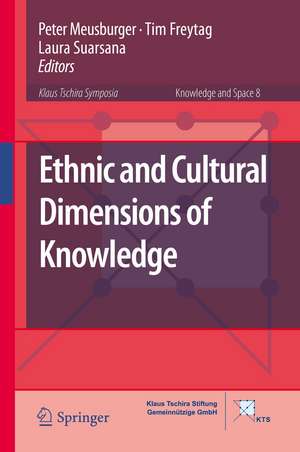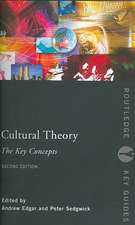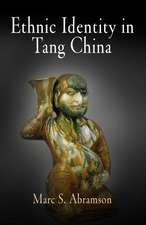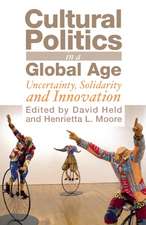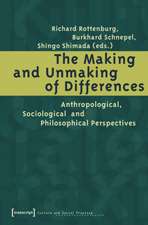Ethnic and Cultural Dimensions of Knowledge: Knowledge and Space, cartea 8
Editat de Peter Meusburger, Tim Freytag, Laura Suarsanaen Limba Engleză Hardback – 6 noi 2015
| Toate formatele și edițiile | Preț | Express |
|---|---|---|
| Paperback (1) | 389.31 lei 6-8 săpt. | |
| Springer International Publishing – 23 aug 2016 | 389.31 lei 6-8 săpt. | |
| Hardback (1) | 402.38 lei 3-5 săpt. | |
| Springer International Publishing – 6 noi 2015 | 402.38 lei 3-5 săpt. |
Din seria Knowledge and Space
-
 Preț: 401.57 lei
Preț: 401.57 lei -
 Preț: 431.94 lei
Preț: 431.94 lei -
 Preț: 281.52 lei
Preț: 281.52 lei -
 Preț: 181.58 lei
Preț: 181.58 lei -
 Preț: 293.36 lei
Preț: 293.36 lei -
 Preț: 295.37 lei
Preț: 295.37 lei - 18%
 Preț: 1383.49 lei
Preț: 1383.49 lei -
 Preț: 394.44 lei
Preț: 394.44 lei -
 Preț: 431.73 lei
Preț: 431.73 lei -
 Preț: 376.24 lei
Preț: 376.24 lei -
 Preț: 396.53 lei
Preț: 396.53 lei - 18%
 Preț: 1114.52 lei
Preț: 1114.52 lei - 18%
 Preț: 943.88 lei
Preț: 943.88 lei - 18%
 Preț: 949.10 lei
Preț: 949.10 lei - 18%
 Preț: 950.66 lei
Preț: 950.66 lei - 15%
 Preț: 644.95 lei
Preț: 644.95 lei - 15%
 Preț: 649.87 lei
Preț: 649.87 lei -
 Preț: 429.61 lei
Preț: 429.61 lei -
 Preț: 92.91 lei
Preț: 92.91 lei
Preț: 402.38 lei
Nou
Puncte Express: 604
Preț estimativ în valută:
76.99€ • 80.39$ • 63.72£
76.99€ • 80.39$ • 63.72£
Carte disponibilă
Livrare economică 14-28 martie
Preluare comenzi: 021 569.72.76
Specificații
ISBN-13: 9783319218991
ISBN-10: 3319218999
Pagini: 304
Ilustrații: X, 304 p.
Dimensiuni: 155 x 235 x 22 mm
Greutate: 0.75 kg
Ediția:1st ed. 2016
Editura: Springer International Publishing
Colecția Springer
Seria Knowledge and Space
Locul publicării:Cham, Switzerland
ISBN-10: 3319218999
Pagini: 304
Ilustrații: X, 304 p.
Dimensiuni: 155 x 235 x 22 mm
Greutate: 0.75 kg
Ediția:1st ed. 2016
Editura: Springer International Publishing
Colecția Springer
Seria Knowledge and Space
Locul publicării:Cham, Switzerland
Public țintă
ResearchCuprins
1. Cultural and Ethnic Dimensions of Knowledge: An Introduction.- 2. The School System as an Arena of Ethnic Conflicts.- 3. Race, Politics, and Geography in the Development of Public Schools in the Southern United States.- 4. Spatial Traditions of Knowledge and Education—Ethnic Groups in the United States Reconsidered.- 5. Educational Inequalities Reflecting Sociocultural and Geographical Embeddedness?—Exploring the Place of Hispanics and Hispanic Cultures in Higher Education and Research Institutions in New Mexico, the United States.- 6. Local Cultural Resource Knowledge, Identity, Representation, Schooling, and Education in Euro-Canadian Contexts.- 7. The Knowing in Indigenous Knowledge: Alternative Ways to View Development, Largely from a New Guinea Highlands’ Perspective.- 8. Local Knowledge as a Universal Social Product: A General Model and a Case from Southeast Asia.- 9. Local Knowledge and Global Concerns: Artificial Glaciers as a Focus of Environmental Knowledge and Development Interventions.- 10. Political Economy, Power, and the Erasure of Pastoralist Indigenous Knowledge in the Maghreb and Afghanistan.- 11.“Masawa—bogeokwa si tuta!”: Cultural and Cognitive Implications of the Trobriand Islanders’ Gradually Lossof Their Knowledge of How to Make a Masawa Canoe.- 12. Beyond Merry-Making: Customs of Indigenous Peoples and the Normative Functions of Ceremonies in Precolonial Igbo Societies.- 13 Knowledge, Behavior, and Culture: HIV/AIDS in Sub-Saharan Africa.
Textul de pe ultima copertă
This book presents theoretical and methodical discussions on local knowledge and indigenous knowledge. It examines educational attainment of ethnic minorities, race and politics in educational systems, and the problem of losing indigenous knowledge. It comprises a broad range of case studies about specifics of local knowledge from several regions of the world, reflecting the interdependence of norms, tradition, ethnic and cultural identities, and knowledge. The contributors exploregaps between knowledge and agency, addressquestions of the social distribution of knowledge, considerits relation to communal activities, and inquire into the relation and intersection of knowledge assemblages at local, national, and global scales. The book highlights the relevance of local and indigenous knowledge and discusses implications for educational and developmental politics. It provides ideas and a cross-disciplinary scientific background for scholars, students, and professionals including NGO activists, and policy-makers
Caracteristici
Offers a unique perspective on the cultural and ethnical dimensions of knowledge generation from an interdisciplinary perspective Delivers intensive theoretical discussions about the concepts of indigenous knowledge and local knowledge Is the first to pay a great deal of attention to African and Asian cultures Makes a unique contribution to cultural aspects of generating and diffusing knowledge
